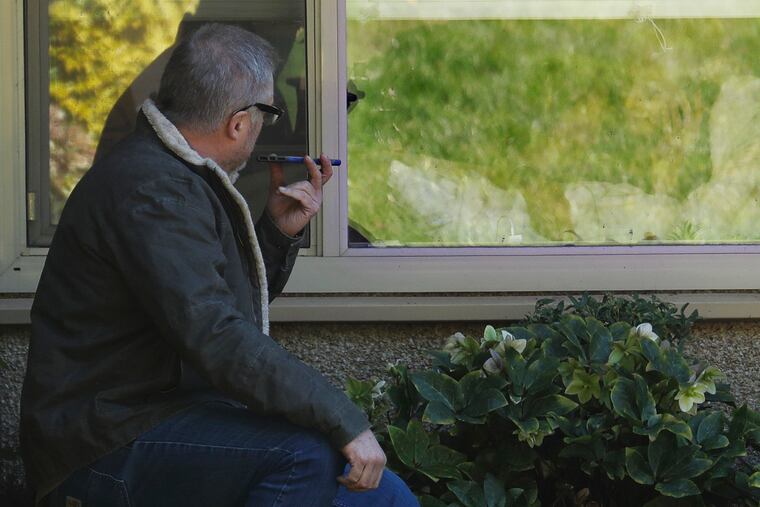Coronavirus means nursing homes and assisted-living facilities should restrict visitors, providers group says
Officials said the new rules are meant to prevent "dire consequences" from the new virus, which is especially hard on the elderly and people with underlying health conditions.

Now is not the time to visit Grandma if she lives in a nursing home or assisted-living facility, an organization that represents senior health providers said Tuesday.
Faced with a potentially “shocking” death rate from the new coronavirus, the group recommended that nursing homes and assisted-living facilities allow visitors only for “critical or time-sensitive reasons such as hospice-related visits, complete medical authorizations, etc.” It added that “routine social visits are strongly discouraged.”
Mark Parkinson, president and CEO of the American Health Care Association (AHCA) and its subsidiary, the National Center for Assisted Living (NCAL), said he was worried that the mortality rate for the population his members serve could be even higher than the 15% that one Chinese study reported among people over 80. Nursing-home and assisted-living facility residents are almost all over 80, he said, and most have underlying health conditions that raise their risk. If coronavirus spreads in their buildings, he said, mortality could be “extremely high.”
He called the restrictions “nearly unprecedented.”
The owners of the Bishop White Lodge at Cathedral Village nursing facility in the Roxborough section of Philadelphia was among the first locally to take action, closing the facility to visitors on Saturday. Others in the area, including the assisted-living facility at Foulkeways in Lower Gwynned, have followed suit.
Nineteen of the 20 people who have died of COVID-19, the disease caused by new coronavirus, in Washington state had ties to Life Care Center of Kirkland, a nursing home where infection spread, according Public Health, Seattle & King County. Two other facilities in that area, one that includes independent and assisted-living and one that provides skilled nursing care, have announced they had one patient each who tested positive after hospitalization.
David Gifford, the organization’s chief medical officer, said the new guidance is not a complete ban on visitors but is meant as much as possible to prevent spread of the virus into this highly vulnerable population.
“Many of the residents have expressed to us they are pleased with the guidance,” Gifford said during a teleconference Tuesday. “My parents have asked me not to visit them.”
Facilities were also urged to screen all people entering their buildings for business reasons, including employees, for signs of respiratory infection, such as fever, cough, and shortness of breath. Facilities should also insist that everyone wash their hands or use disinfecting hand gel before going inside.
Newly admitted residents should also be screened and isolated if they have respiratory symptoms, Gifford said.
Facilities should explore other ways that families and residents can communicate as well as make sure that emergency contacts records are up to date. AHCA said that tours of facilities should stop and that residents should not go on outings in the community.
The Centers for Medicare and Medicaid Services issued similar, but more detailed, recommendations for nursing homes Tuesday.
Acts Retirement Life Communities, a Fort Washington-based company that operates continuing-care retirement communities, is restricting access by outside groups that use its campuses for meetings. It is screening visitors for respiratory symptoms, recent travel to high-risk areas, or contact with anyone at risk. It is encouraging family members to keep in touch with loved ones through telephone, email, text, Skype, and FaceTime.
NCAL pointed out that enforcement of some of the recommendations could be harder in assisted-living facilities, where residents tend to be healthier and have more freedom to leave their buildings and where buildings often have more entrances.
Gifford called for giving the senior workforce priority for viral testing so that nursing homes and assisted-living facilities are not understaffed because people are sick with other diseases that have similar symptoms. He also said states should relax their medical licensing rules so that nurses and doctors can cross state lines to work in areas with staff shortages.